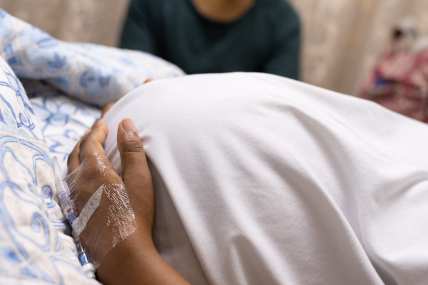Premature births on the rise for Black mothers, report finds
Premature births have increased for Black, American Indian and Alaska Native women
The U.S. saw a decline in premature births in 2020, for the first time in six years, but the numbers have increased for Black, American Indian and Alaska Native women, according to a new report from the March of Dimes.
A premature birth occurs when a baby is born at least three weeks before their expected due date, according to the Mayo Clinic. The new report, released Monday, noted that Black, American Indian and Alaska Native women are 60% more likely to give birth before 37 weeks of pregnancy are completed.
The data’s release coincides with World Prematurity Day on Nov. 17. Mothers, health officials and advocates use the day to raise awareness about the risks of premature births.
“Factors such as where a person lives and the structural and societal systems they live under all impact the health of moms and babies and lead to a health equity gap,” the March of Dimes noted in a statement.
The Virginia-based nonprofit rated each state according to preterm birth and infant death cases. Vermont was the top-rated state, and the only one to receive an “A” grade.
California, Massachusetts and Washington received a “B” grade. Alaska, Hawaii, Iowa, Kansas, Montana, North Dakota, Wisconsin and Washington, D.C. received a “C.”
Several states received an “F” rating, including Alabama, Arkansas, Louisiana, Mississippi, South Carolina and West Virginia, as well as Puerto Rico.
As of 2020, one in every 10 babies is born prematurely in the U.S., according to the Centers for Disease Control and Prevention. Per the agency’s website, babies born before 32 weeks have higher rates of death and disability. Babies who survive may have breathing problems, cerebral palsy, feeding difficulties and other developmental delays. More than 700 women die of pregnancy-related complications each year in the U.S.
The CDC reported in 2019 that Black women are three times more likely to die from pregnancy-related deaths than white women.
In 2019, California lawmakers passed legislation that requires hospitals and other healthcare facilities in the state to implement implicit bias training for all health care providers who are working in perinatal services. A 2018 report in the November issue of the Journal Obstetrics & Gynecology revealed that non-Hispanic Black women are most at risk of having severe birth-related health problems than non-Hispanic white women.
Read the latest March of Dimes report on premature births here.
Have you subscribed to the Grio podcasts, ‘Dear Culture’ or Acting Up? Download our newest episodes now!
TheGrio is now on Apple TV, Amazon Fire, and Roku. Download theGrio today!


